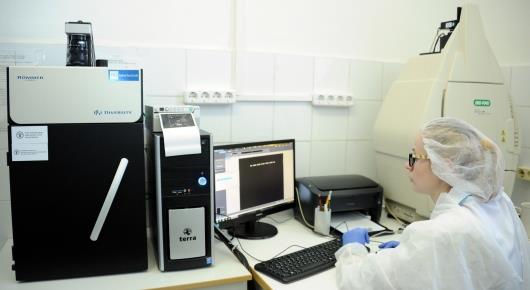FAO training in Moscow to help monitor, fight ‘superbugs’

The growing resistance of bacteria, fungi, viruses, and parasites to antimicrobials is a grave health concern the world over. If nothing is done to limit it, an estimated 10 million people per year will be at risk by 2050, to say nothing of the enormous associated economic cost.
With the increased use of antimicrobial medicines such as antibiotics in human and animal healthcare comes an associated growth in the number of disease-causing microbes that are resistant to medicines traditionally used to treat them.
Surveillance of antimicrobial resistance, which can provide valuable information on which to base support for national and international efforts, is the cornerstone of FAO’s plans to aid countries in the fight against these so-called “superbugs.”
To that end, FAO has developed its Assessment Tool for Laboratories and Antimicrobial resistance Surveillance Systems (ATLASS) and is building, country by country, a worldwide community of assessors to monitor and sustain the momentum toward surveillance in the food and agriculture sectors.
This week in Moscow, FAO has kicked off for experts in the Russian Federation a five-day training on the use and implementation of ATLASS, with support from the Russian Federal Service for Surveillance on Consumer Rights Protection and Human Wellbeing (Rospotrebnadzor) and the Central Research Institute of Epidemiology in Moscow.
FAO animal health officer Andriy Rozstalnyy said that trainees would be introduced to the background, scope, objectives, context and potential applications of the tool and also would receive valuable experience in the field.
“To help them gain practical experience,” Rozstalnyy said, “trainees will visit the microbiology laboratory of the Federal Centre of Hygiene and Epidemiology, which already is involved in the surveillance of antimicrobial resistance in food and agriculture in the Russian Federation.”
After their training, he added, the ATLASS assessors would be involved in missions to five national surveillance systems in the region.
The training is part of a USD 3.3 million project backed by the Russian Federation to help authorities in Armenia, Belarus, Kazakhstan, Kyrgyzstan and Tajikistan get a better handle on the threats posed by antimicrobial resistance in agriculture and food systems.
In using the FAO assessment tool, assessors collect descriptive data and score the performance of surveillance activities in each country by mapping laboratory analytical capabilities and networks and assessing activities on data collection and analysis, governance, communication, and sustainability. The results help assessors provide recommendations for improvement.
To date, the tool has been used to assess 14 national antimicrobial resistance surveillance systems – six in Africa (Ghana, Kenya, Senegal, the United Republic of Tanzania, Zambia, and Zimbabwe) and eight in Asia (Cambodia, Indonesia, the Lao People’s Democratic Republic, Myanmar, the Philippines, Singapore, Thailand, and Viet Nam).
The use of ATLASS continues to expand, Rozstalnyy said.
“FAO’s aim is to expand the use of the tool in the coming years,” he said, “as it helps to harmonize and coordinate national and international surveillance systems in the food and agriculture sectors in the framework of the One Health approach.”
27 August 2018 Moscow, Russian Federation
